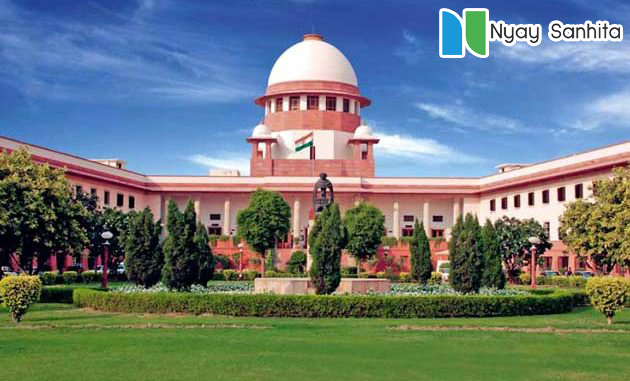
The Supreme Court on Friday said that when an accused voluntarily surrenders before the court, he cannot be detained.
A bench of Justice Bela M. Trivedi and Justice Pankaj Mithal was hearing an appeal challenging the order passed by the High Court.
In this case, the Special (CBI) Court No. 1 (Special Court) failed to conduct a proper investigation, as it did not issue any summons order for the Appellant (Accused No. 10).
Notwithstanding this, taking cognisance of the offences under the Prevention of Money Laundering Act, 2002, the Special Court issued a summons to the Appellant on 07.12.2022 using the prescribed form under Section 61 of the Code of Criminal Procedure.
Subsequently, after the appellant voluntarily surrendered, the Special Court rejected his bail plea on 22.02.2023. The said order was challenged by the appellant in the High Court, which was rejected by the High Court.
Shri Luthra, counsel for the appellant, submitted that despite the observation of the Special Court that accused Nos. 1, 2 and 9 were already in judicial custody, and no process was required to be issued, summons was issued to the appellant by mistake and Served.
He argued that the appellant surrendered voluntarily in reliance on the summons of the court and since then he is in judicial custody. He emphasized that without a specific order to summon the Appellant, he should not have been detained, accepting that this was a mistake on the Appellant’s part, based on incorrect legal advice.
The Supreme Court said that when taking cognisance of an offence, the Court is of the opinion that there is sufficient ground for proceeding, it may issue a summons for the attendance of the accused, or issue a warrant to show cause when the case appears to be a summons case. Is. When the case appears to be a warrant case under Section 204 of the CrPC, the accused should be brought or produced before the court. The form of summons should be as prescribed under Section 61 and the form of arrest warrant should be as prescribed under Section 70 CrPC.
Further, the bench said that when a person accused or suspected of a non-bailable offence is arrested or detained without warrant by the officer in charge of a police station or is produced or brought before any court other than the High Court goes. Or Sessions Court, he can be released on bail under Section 437 of CrPC.
The Supreme Court said that no order was issued by the special court to serve summons or warrant to the appellant. Despite this, a summons under Section 61 was issued on 22.12.2022, asking the Appellant to appear on 07.01.2023. The Appellant applied for bail when he appeared. Since there was no prior order for summons or warrant, the bench said the bail plea should not have been entertained.
The bench said that Section 437 would apply when the accused is arrested or detained or when a summons or warrant is issued against him to bring or produce the accused before the court. In the absence of any order issuing summons or warrant under Section 204 or under any other provision of the CrPC, the summons could not have been issued or served on the appellant nor could he have been arrested or detained .
The Supreme Court said that the appellant-accused filed the bail plea in the special court based on misconceptions of fact and law, due to which it was rejected. In view of the above, the bench allowed the appeal.
Case Title: Souvik Bhattacharya vs. Directorate of Enforcement, Kolkata Zonal Office-II
Bench: Justice Bela M. Trivedi and Justice Pankaj Mithal
Case No: Arising from SLP (Criminal) No. 14476 of 2023